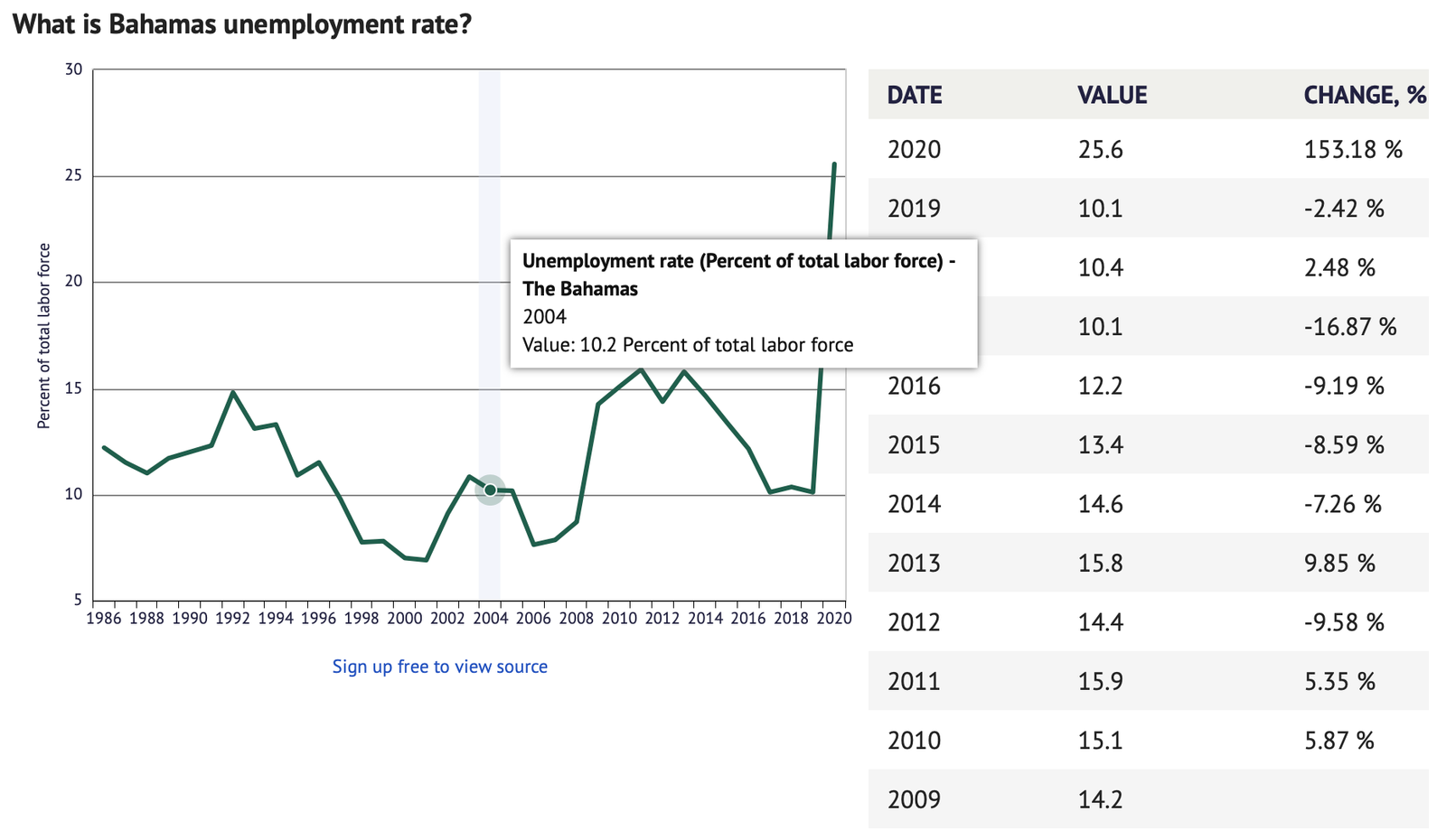Central Bank reported rate of joblessness as 25.6% in May 2020
NASSAU, BAHAMAS — Acting Director of the Bahamas National Statistical Institute Leona Wilson has confirmed that a Labour Force survey will not be performed this year, maintaining that the next likely survey on the rate of joblessness in The Bahamas will come next May.
The survey, performed twice annually, is usually released in May and December.
The latter survey is typically performed in August.
The last data on unemployment from the institute, previously called the Bahamas Department of Statistics, was conducted in December 2019.
As Eyewitness News reported in February, this would make more than two years without data of the state of unemployment in The Bahamas.

The director has advised that as statisticians prepare to undertake the population census — a complete count of the population and living quarters — a Labour Force Survey would be “near impossible to complete”.
The census will begin on September 6, and be called “Census Day”.
The following day, enumerators will begin traversing the islands to collect contact information to enable each household to access the web portal to complete the census questionnaire online over a three-month period.
A total of 170 listers will be hired to assist with the exercise.
In a March release, Wilson said: “This year signals a landmark accomplishment for the Ministry of Finance through the Department of Statistics.
“For the first time in The Bahamas, the census of population and housing will be conducted electronically.
“Additionally, due to the COVID-19 environment, the department plans to introduce alternative methods of data collection namely, online, telephone and personal interviews.”
Asked about the progress of the census, Wilson told Eyewitness News more will be shared with the public at a later date.
At the time of the last survey in December 2019, joblessness on New Providence increased to 10.7 percent — up from the 9.4 percent reported in May 2019.

Due to the devastation caused by Hurricane Dorian, Grand Bahama and Abaco were left out of the survey.
In December 2019, there were 18,195 people registered as unemployed.
That figure more than doubled due to the economic shock brought on by the coronavirus pandemic, according to government estimates and National Insurance Board data of unemployment assistance.
While the department has not performed the survey since, the Central Bank reported unemployment at 25.6 percent in May 2020, a month into the pandemic that saw the country and its borders locked down.
Unemployment was estimated at as high as 42 percent during the peak of the pandemic which saw widespread closures due to COVID-19 restrictions, including extensive lockdowns.
In February, Minister of Labour Dion Foulkes said unemployment had “drastically declined” in the nation, though he did not provide empirical data to support the claim.
While the minister acknowledged it was difficult to estimate the percentage without more information, Foulkes said the majority of businesses had reopened and employees returned to work as the country opened its doors, relaxed restrictions and resumed its tourism product.
Prior to the pandemic, Prime Minister Dr Hubert Minnis estimated that joblessness would decline to under six percent based on projections at the time.






